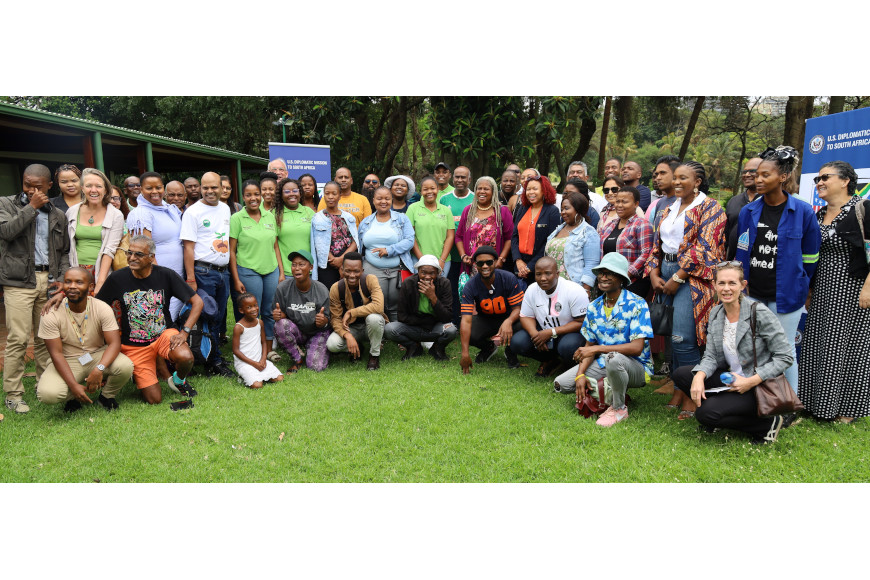The Durban University of Technology’s Urban Futures Centre (UFC@DUT), the United States (US) Embassy South Africa, the Durban Botanic Gardens, and Bioregional South Africa recently co-hosted an enlightening and inspiring dialogue around collective and communal gardening, and how this return to the land could positively advance our pursuits of social and environmental justice. The event was held on Friday, 18 November 2022 at the Durban Botanic Gardens.
Martin Clement, Durban Botanic Gardens Curator, opened the event with a historical overview of the gardens, which were initially established as a space for testing agricultural plants. He highlighted how they are, in a way, revisiting this historical positionality of the gardens by connecting some of their programmes to the broader resurgence/ movement to rediscover the value of gardening.
Dr Tamlynn Fleetwood (UFC Researcher) highlighted the benefits that have been witnessed thus far from the Organic Waste to Compost Pilot, which forms part of the #Warwick Zero Waste Project in eThekwini Municipality. The pilot, co-implemented by the Durban Botanic Gardens, DUT Horticulture and eThekwini’s Business Support Unit (Markets), offers an exemplar of a low-tech, low-cost solution to reducing methane emissions, by diverting organic waste from landfill via composting.
Sarah Alsen: Director of Bioregional South Africa briefly unpacked how on-site composting has opened up new possibilities for two urban gardens in Durban (Sisonke Garden Project): one near the beachfront and Elangeni Hotel and a new garden in Davenport Park. She encouraged attendees to develop a network of urban food gardens that can grow food for local market needs, and in turn feed micro-enterprise opportunities.
Karen Washington, a farmer food justice activist and a community organiser from New York shared a dynamic presentation around food justice, food sovereignty and food Apartheid. She also looked at Black peoples’ historically traumatic and triggering relationship with land, and how the narrative around that relationship needs to be rewritten as a celebration of peoples’ capacity to grow food to feed the world, thereby harnessing that narrative to rethink food and the preservation of indigenous seeds as an economic engine. Karen Washington also shared the importance of the power of communities, drawing on her experience of establishing food gardens and community food security projects around the United States.
Karen Washington explained how her passion of growing food began.
“It all started with a tomato, I never liked it. It wasn’t red, it was pale pink, it had no taste. Until I started growing it myself, I didn’t even know it grew on a vine, let alone that it was red and brown and juicy. When I finally bit into my fresh, garden-grown tomato, it just changed my world. It really gave me the ambition to want to grow food myself. Then, in 1988, I looked out my kitchen window to the empty lot across the way and saw a man with a pick and a shovel. I went out and I asked him what he was doing, and he said, “I’m thinking about starting a community garden.” I asked if I could help. That’s where my passion for growing food started, I never stopped till today,” explained Washington.
The session closed with an empowering story from Gabriel Mngoma, an independent permaculture consultant, as well as an informative presentation by colleagues from the US Embassy South Africa about agriculture-specific visas that are geared towards creating seasonal work opportunities for South Africans in the United States of America (USA).
Pictured: Karen Washington along with the event attendees.
Karen Byera Ijumba/ Nomvelo Zulu


